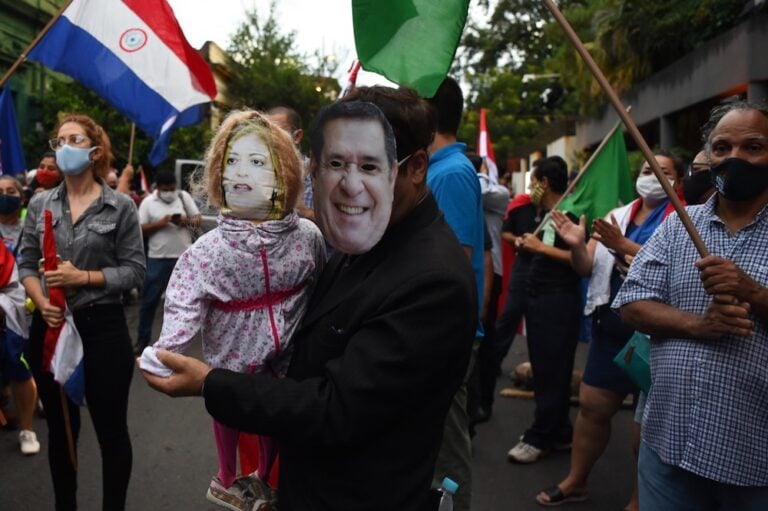The editor of 'ABC Color', Natalia Zuccolillo, and journalist Juan Carlos Lezcano have been targeted with defamation lawsuits and a lawsuit for alleged "crimes against honor and reputation".
This statement was originally published on en.sipiapa.org on 1 September 2022.
The IAPA called for the decriminalization of defamation in Paraguay
The Inter American Press Association (IAPA) expressed concern over the judicial harassment against the editor and a journalist of the Paraguayan newspaper ABC Color. The organization recalled that criminal and civil lawsuits often intimidate the media and journalists and encourage self-censorship.
The editor of ABC Color, Natalia Zuccolillo, and journalist Juan Carlos Lezcano were accused in three criminal cases. First, the former vice-minister of Taxation during the presidency of Horacio Manuel Cartes Jara (2013-2018), Marta González Ayala, filed a defamation lawsuit for six reports disclosed between March 27 and April 22, 2019. She asked for a prison sentence and compensation of approximately U$S 1,400,000. Another case for slander and defamation is linked to notes published between March 15 and 21, 2021. The third lawsuit for alleged crimes against honor and reputation was filed by attorney Jacinto Santa María, husband of the former vice-minister.
IAPA President Jorge Canahuati, CEO of Grupo Opsa, of Honduras, said: “Reports and resolutions of our institution show how in many countries defamation lawsuits are used by public officials to counteract allegations of corruption against them.” But, he added: “The case of Paraguay alarms us because we have not been able to influence legislators and governments to decriminalize defamation, as has been achieved in other countries of the continent.”
The president of the Commission on Freedom of the Press and Information, Carlos Jornet, editor of La Voz del Interior of Argentina, warned about “the chilling effect that lawsuits have on media. The cases seek to economically damage the media and discourage investigative journalism by requiring resources, experts and time to attend to the lawsuits.”
Canahuati and Jornet pointed out that the IAPA has been requesting for many years that lawsuits for libel and slander, when they involve public officials, be heard in civil and not criminal jurisdiction. They also consider that limits be set on the amount of compensation to avoid abuses because often high or disproportionate reparations are intended to undermine the economic sustainability of the media.
The Declaration of Principles on Freedom of Expression of the IACHR states that reputation should only be guaranteed through civil sanctions in cases where the person offended is a public official, a public person, or a private person who has voluntarily become involved in matters of public interest. In the same sense, the IAPA’s Declaration of Salta of Principles on Freedom of Expression in the Digital Age, in its third article, states: “In cases where civil claims are filed, evidence of real malice must be proven.”
The IAPA officers urged the Paraguayan authorities to join the trend of countries in the Americas that have embraced Inter-American legal standards on decriminalizing these crimes, a struggle that the IAPA has championed for decades through its Chapultepec Project.
Canahuati and Jornet expressed the organization’s solidarity with ABC Color, Zuccolillo, and Lezcano, and said they would be watching the judicial process closely.



